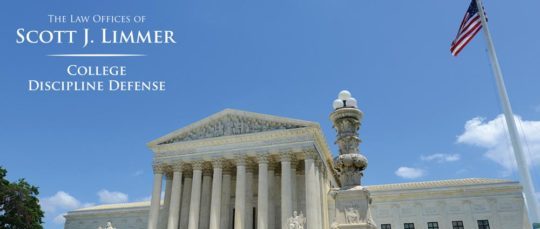Earlier this year, a federal magistrate judge in Harrisonburg, Virginia issued a decision recommending that state college James Madison University (JMU) pay almost $850,000 in attorneys’ fees and court costs to the pseudonymous “John Doe,” a student whom the school wrongly punished for an assault which a Title IX tribunal a year earlier had declined to find him responsible. If approved by the judge presiding over Doe’s lawsuit against the university, it would be the largest known award in such a case.
A Title IX charge had been brought against Doe by another JMU student, “Jane Roe.” In August 2014, Roe filed a complaint under Title IX, which obligates schools receiving federal funding to investigate and take appropriate enforcement action against sexual harassment or sexual misconduct against students or staff. Her complaint alleged that Doe, who lived in the same dorm, several months earlier had intercourse with her when she was intoxicated. But after a campus tribunal hearing saw evidence casting doubt on Roe’s intoxication claim, Doe that December was found not responsible for sexual assault.
In a criminal court proceeding, the Fifth Amendment of the Constitution forbids double jeopardy. But as interpreted by the Obama Department of Education (DOE), Title IX allows an accuser to appeal a decision for the defendant. The appeal, heard by a board of three university professors, adopted many other much-criticized aspects of DOE’s procedures: the board forbade Doe to appear or examine witnesses, kept him from seeing some of the evidence, and did not itself examine witnesses about disputed evidence.
Even so, the board reversed the earlier verdict and imposed what it called a “new sanction,” handing Doe a five-year suspension, without explaining how it came to that decision, or finding Doe responsible for the alleged sexual misconduct. A senior JMU official affirmed the board’s reversal, without advance notice to Doe or any opportunity for him to offer input or explanation. Under the new sanction, after the five-year suspension, Doe would be permitted to apply for re-admission, if he completed an education and counseling program. Perhaps coincidentally, a change in JMU’s records retention policy caused the shredding of all records in Doe’s entire file, including the original hearing and the reversal on appeal.
With the help of a local law firm and the Center for Individual Rights, a Washington, D.C.-based non-profit group, in 2015 Doe brought a lawsuit (John Doe v. Alger) in federal court over the university’s handling of his case. Late the next year, the presiding judge ruled for Doe, finding JMU had violated Doe’s due-process rights, through allowing the double-jeopardy violation and otherwise, and ordered the school to expunge his record and reinstate him in the school.
Since Doe prevailed in the court case, he was eligible to have his attorneys’ fees and court costs reimbursed, but – as it had at nearly every point in the federal trial – JMU resisted. Finally, after about a year of hearings, magistrate judge Joel Hoppe determined JMU should pay Doe $849,231. His 46-page report notes at several points JMU made objections but failed to offer proof for them.
Unsurprisingly, the university has signaled it will likely object to the magistrate’s ruling. The judge presiding over Doe’s case should soon decide whether to accept the magistrate’s recommendation.
